Lecture theatre transformation enables diverse forms of teaching at Imperial
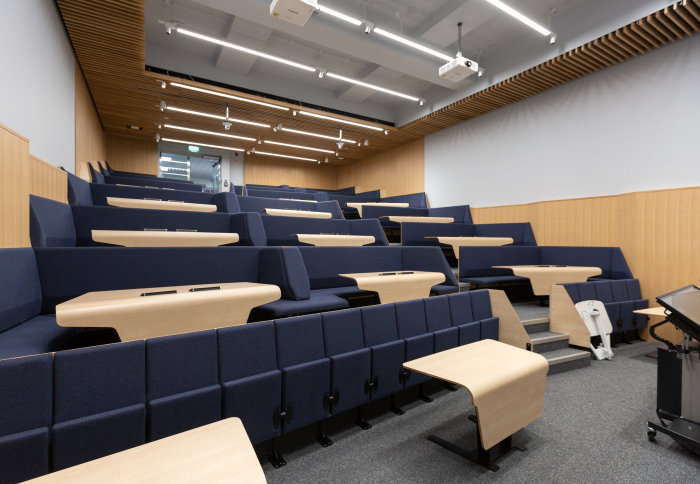
Blackett Lecture Theatre LT2 (113), post-renovation
Renovations of lecture theatres at the College's South Kensington campus offers more creative and flexible learning and teaching spaces.
The lecture theatres, Blackett LT2 (113) and RSM 147, were stripped out this summer and renovated as part of a longterm project to improve learning and teaching spaces across the College.
The first series of improved spaces opened at the start of the 2018/19 academic year, and attracted positive feedback from teachers and students alike. The College's significant investment has now being expanded with these lecture theatre renovations, with both spaces ready to use before the first week of the 2019/20 academic year.”
Situated in buildings traditionally used by Physics and Engineering students, the converted lecture theatres can be used for lectures, using new digital technologies, and delivering more interactive, group-based teaching sessions. The spaces also deliver greater accessibility and can be used as quiet study space for all students when not in use for teaching.
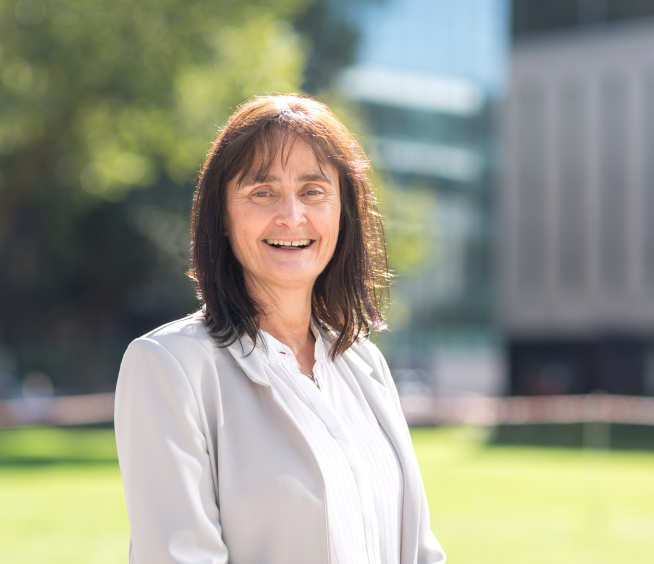
Professor Michele Dougherty, Head of the Department of Physics, said: "With a refreshed lecture theatre and computing suite, Physics students and staff now have more choice. Both spaces help unlock the more interactive aspects of our degree programme, which were quite difficult to convey with our old facilities.
"Break-out spaces, whether they be for socialising or studying, are at a premium in such a densely-populated campus. However we know our students want us to make this our next priority, and I'm glad to report that work is already underway on further improvements."
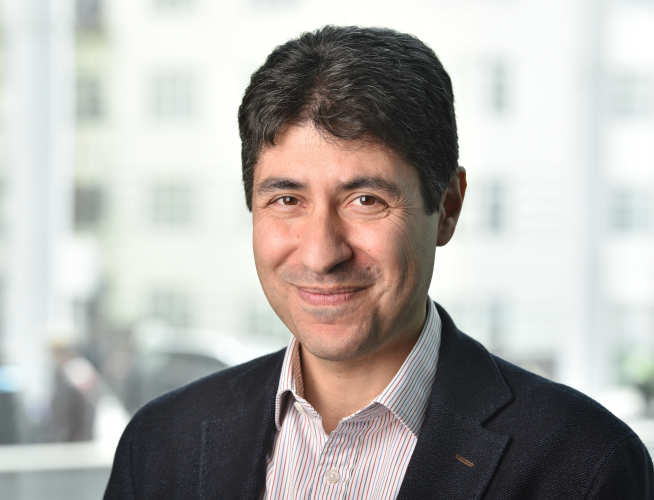
Vice-Dean (Education) for the Faculty of Engineering, Professor Omar Matar, said: "This comprehensive update to our learning and teaching spaces will lead to significant improvements in the student and staff experience.
"Moreover, by evaluating the impact of these renovations we'll get a sense of how the spaces are being used, and what our priorities should be for the future."
Dr Jonathan Eastwood, Senior Lecturer, and Professor Carlo Contaldi, Professor of Theoretical Physics, were both involved in shaping the redesign of Blackett LT2 (113).
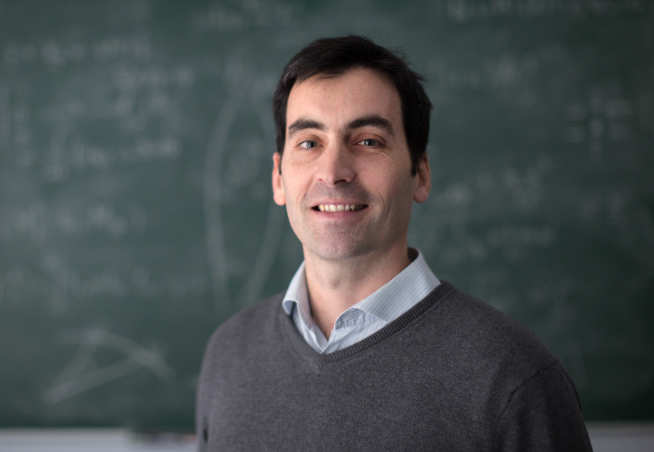
Professor Contaldi said: "We are very excited by the opportunities the new space will provide and it has been great to work with students and colleagues across College to make the vision a reality. We'll be using it straight away to deliver new active learning sessions as part of the revamped Physics undergraduate curriculum."
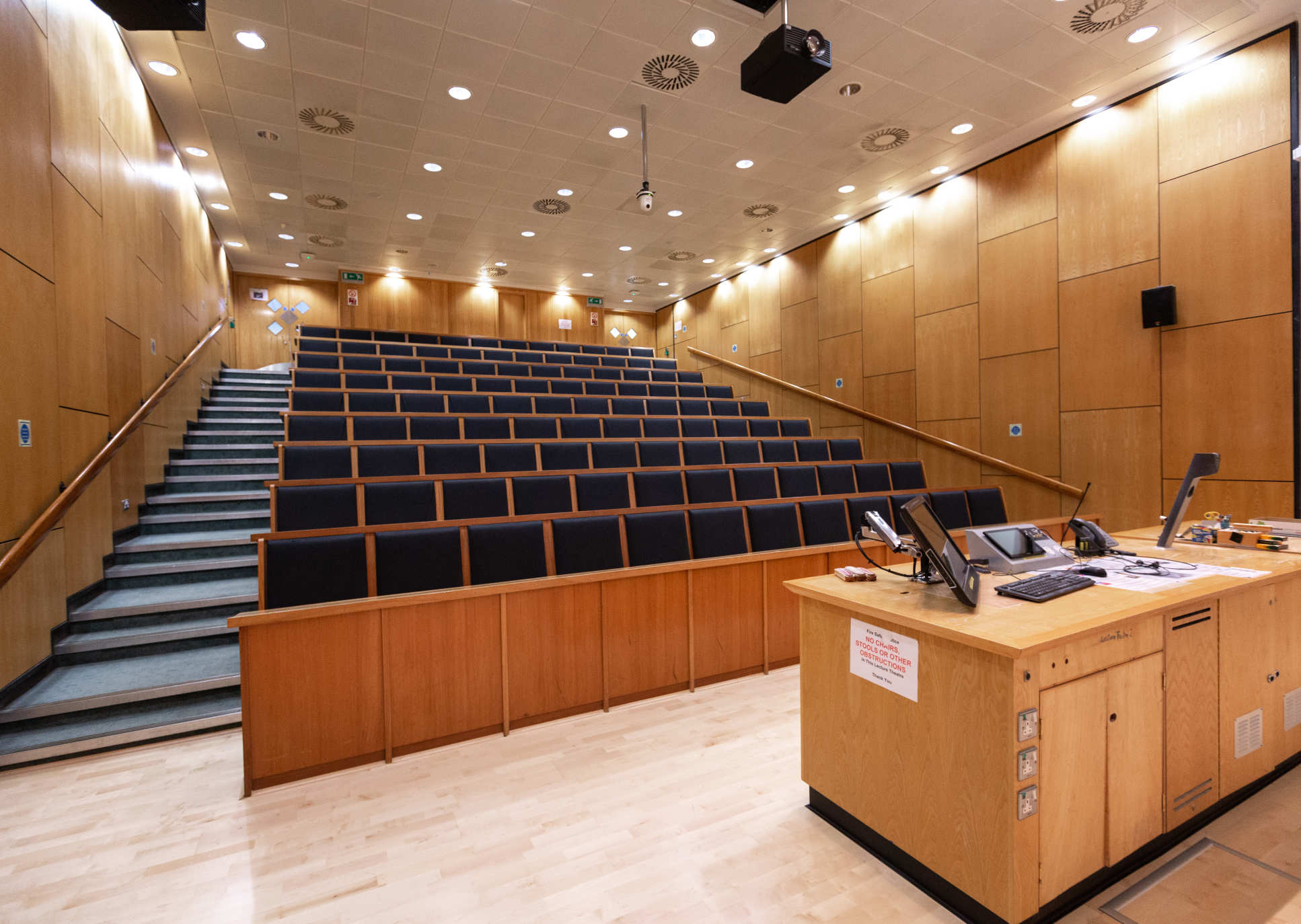
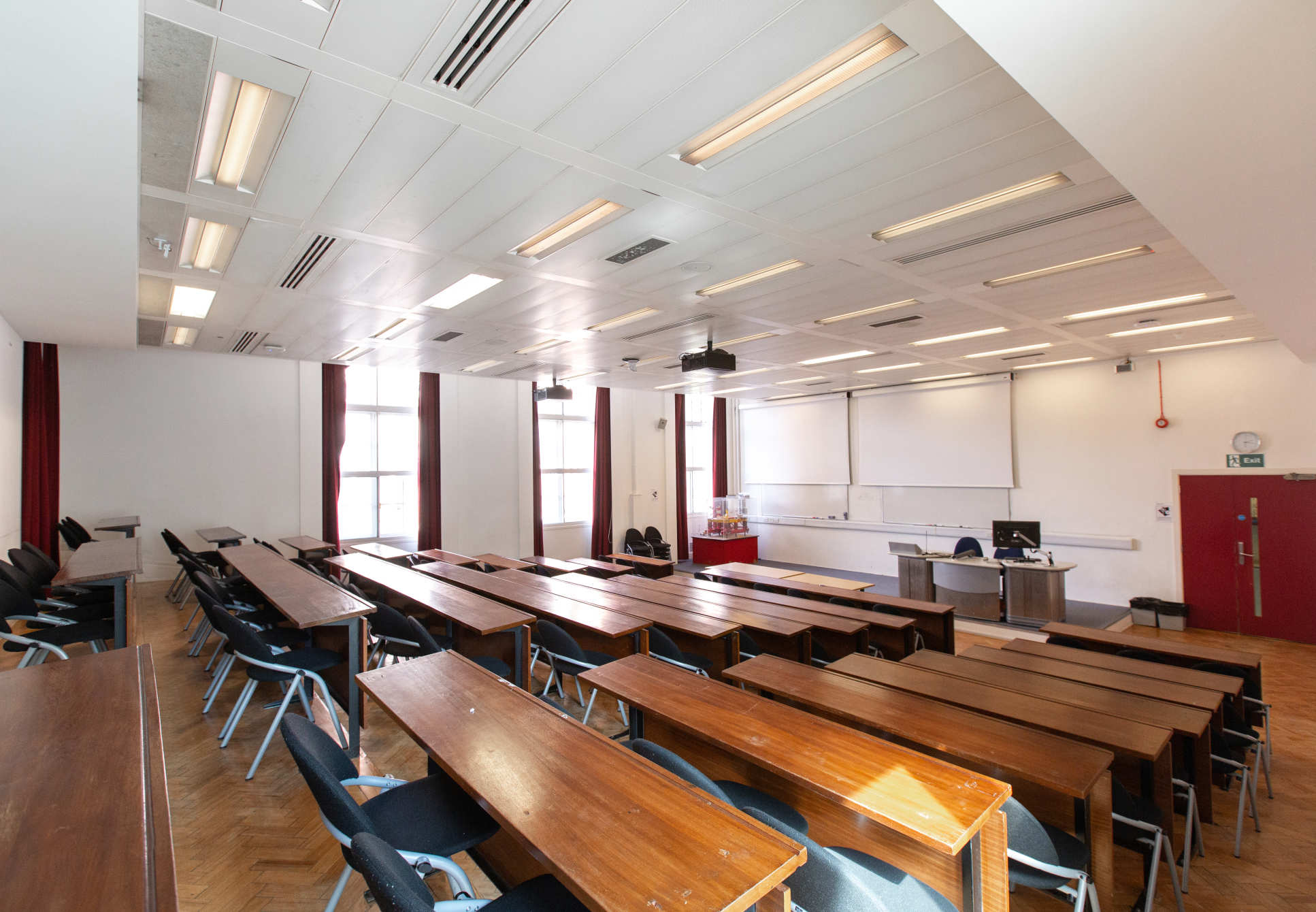
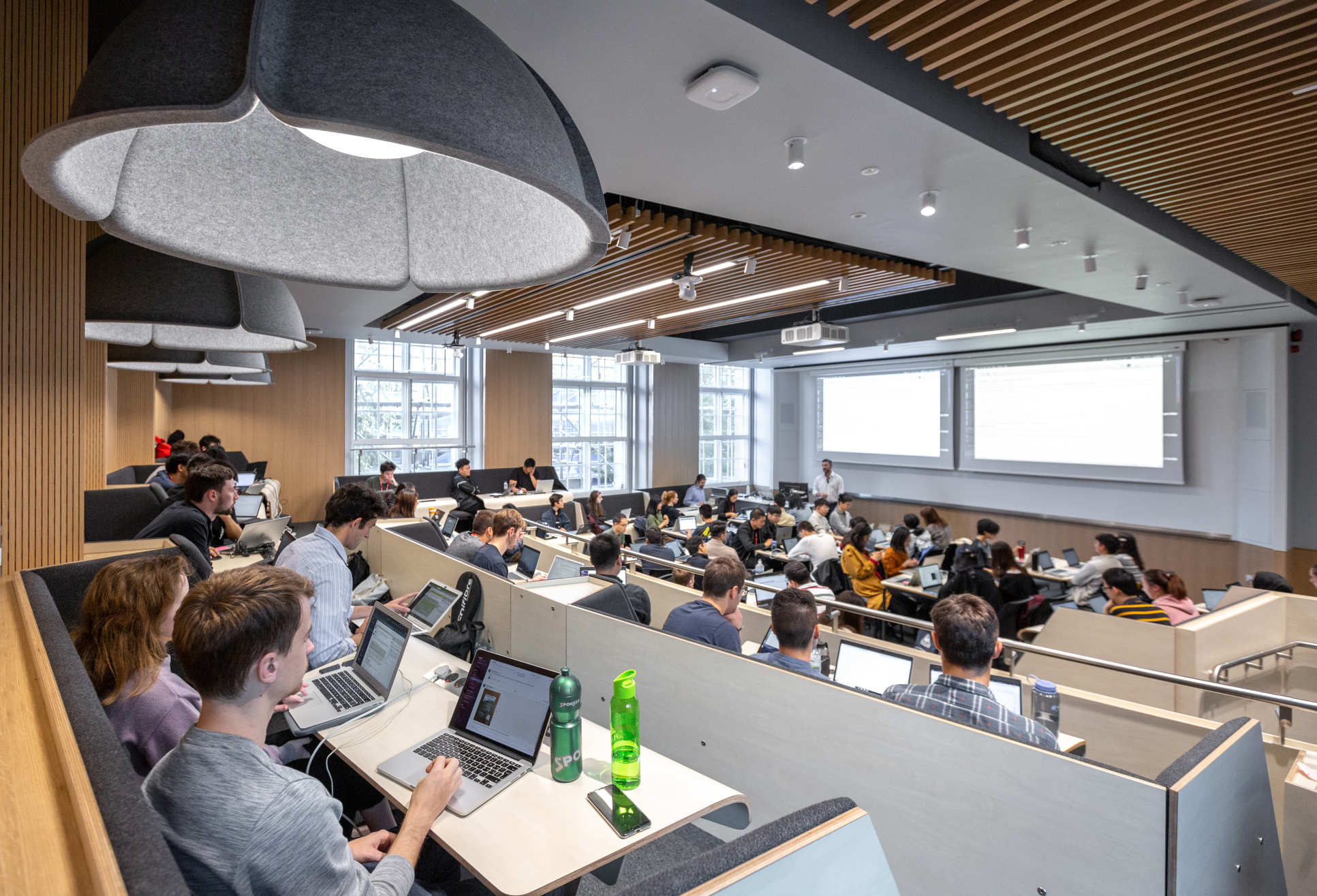
Student collaboration
Physics students had considerable involvement in influencing the design of Blackett LT2 (113). Through discussions on-campus and a visit to University of Leeds, a pioneer of conversions of lecture theatres to enable small group teaching at scale, students quickly gained a sense of what may be possible for their own teaching space.
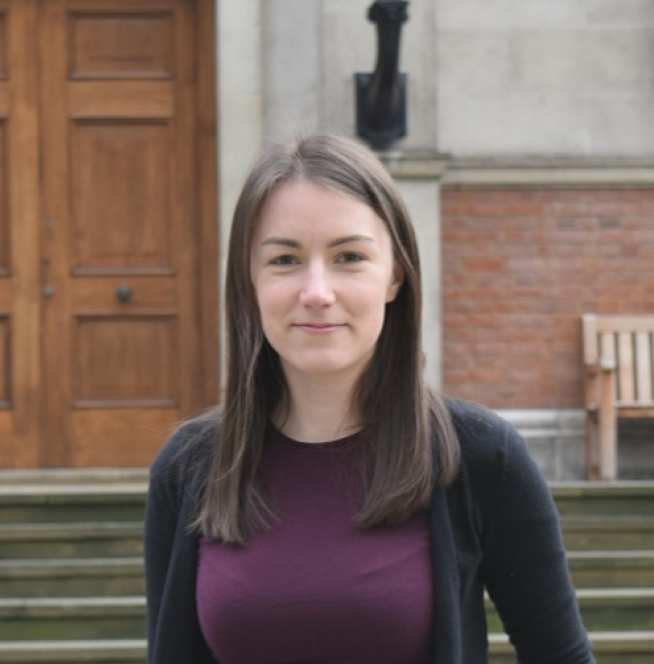
PhD student, Michaela Flegrova, said: “These renovations will help future Physics students see the importance of the Department to the College.
“Students have justifiably high expectations, especially around digital technology. I'm delighted we now have digital screens that can be annotated by lecturers as they teach, with the content uploaded online afterwards. This will make for a much more natural learning experience and means what currently gets written on (and scrubbed off) a whiteboard will be able to be referenced at a later date."
New features
Alongside more attractive and modular fixtures and fittings, the renovated lecture theatres have a number of features that follow 'accessibility by design' principles. For example: multiple wheelchair places in lecture theatres, front and back; entry ramps; wall partitions; AV solutions to help lip reading and sign language interpretation software; and power and data points at all seats.
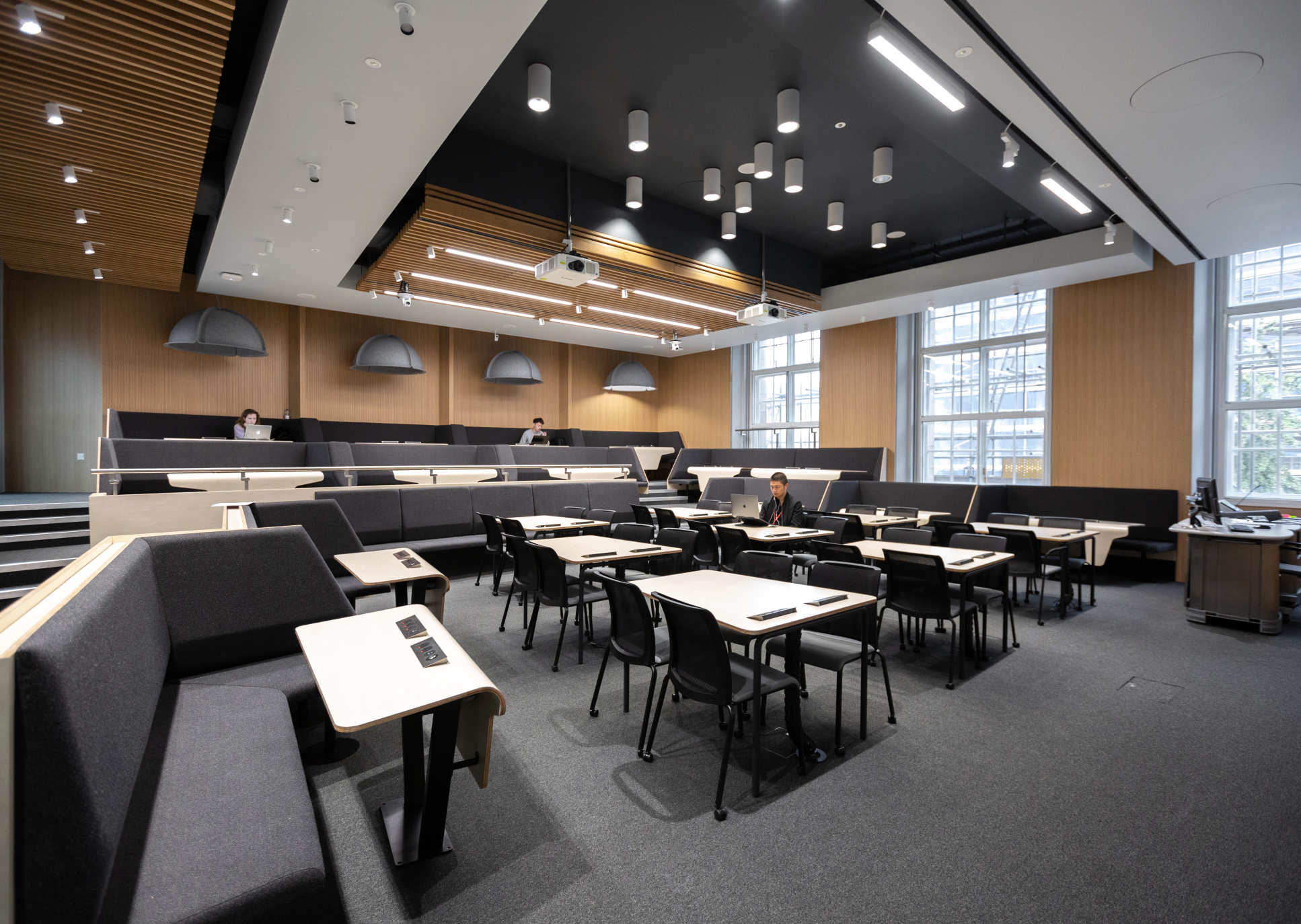
Next steps
Nick Roalfe, Director of Estates Operations, said: "This multiyear programme will see the majority of the currently planned improvements delivered over the next 1-2 summers.
"We're going to be gathering the student representatives and teachers that have been involved in all of the work to date and we're going to evaluate the improvements so as to inform our plans going forward. Not all teaching has to be interactive or involve digital technologies, but providing our community with the option of taking this route will inevitably result in an improved student experience."
Article text (excluding photos or graphics) © Imperial College London.
Photos and graphics subject to third party copyright used with permission or © Imperial College London.
Reporter
Murray MacKay
Communications Division